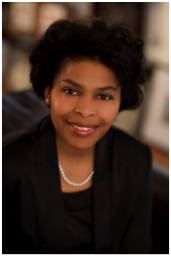July is BIPOC Mental Health Awareness Month
Trigger Warning: racism, abuse, oppression and hate crimes affect our mental health
Black, Indigenous, and People of Color (BIPOC) communities have faced historical injustices, racism and oppression which have been shown to affect both our physical and mental health. BIPOC communities have also demonstrated resilience, tenacity and triumph in the face of such adversity. BIPOC Mental Health Awareness Month is a time to acknowledge and bring awareness to both realties.
The true mental illness we often see today is racism and the effects of racism. Everyone is encouraged to be aware of racism and its effect on the health of all Americans, especially those who are BIPOC and from oppressed and underestimated populations. We use this awareness to heal and work together to dismantle systems of oppression that research shows are detrimental to our health and well-being.
The mental health effects of racism may include experiencing the following:
- Sad, depressed, or have suicidal thoughts
- Anxiety and vigilance, on guard for the next discriminatory experience
- Internalized racism (believing negative messages about BIPOC populations) and decreased self-worth
- Pessimistic and hopeless about the possibility of change
- Distress and post-traumatic stress
- Anger
- Lack of energy for planning, thinking, and coping
- Increased likelihood of using alcohol and substances
Each year, mental illness affects:
-14% of Asian adults
- 17% of Black adults
- 17% of Native Hawaiian/Pacific Islander adults
- 18% of Hispanic/Latinx adults
- 19% of American Indian/Alaska Native (AI/AN) adults
- 36% of multiracial adults
- 47% of LGB adults
Data on BIPOC mental health can be found on the Mental Health America website: https://www.mhanational.org/bipoc-communities-of-color
Talking with a culturally competent and responsive licensed mental health professional helps. We talk and share our stories to replace abuse, oppression, and trauma with triumph, hope, and healing. We heal so our families and communities can remain healthy and strong. The takeaway message is that you are not alone. Support and help are available to support your mental health and well-being.
Resources
988- Using 988 is free. When you call, text, or chat 988, your conversation is confidential. 988 provides you with judgment-free care. Talking with someone can help save your life. Specialized counselors can address Black mental health; attempt survivors; youth; Native American, Indian, Indigenous & Alaska Natives; maternal mental health; Veterans & Service members; deaf, hard of hearing, & hearing loss individuals; individuals with neurodivergence; disaster survivors; loss survivors; LGBTQI+ individuals; and more. Available in over 200 languages.
Resources to connect to individual therapy can be found here: https://www.mhanational.org/racial-trauma
Resources for free group support can be found here: https://www.nami.org/support-education/support-groups/
Sources:
https://www.mhanational.org/racial-trauma
https://omh.ny.gov/omhweb/disaster_resources/webinar-addressing-grief.pdf
https://omh.ny.gov/omhweb/cultural_competence/the_mental_health_effects_of_racism.pdf


